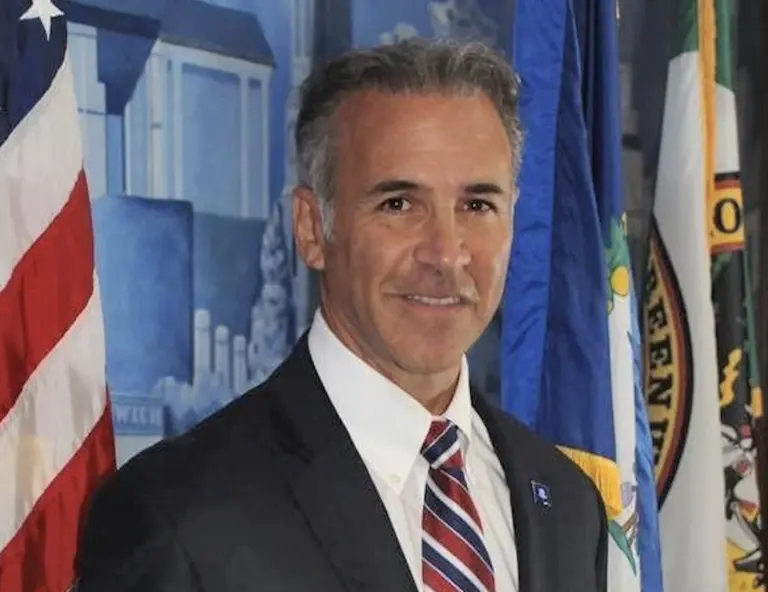By Sen. Ryan Fazio
Do you believe that developers should be allowed to build high-rise buildings anywhere in our town without having to go through the local zoning process?
I don’t, but many people in power in Hartford do. Under the current state affordable housing law, 8-30g, developers can build any residential building of any size ignoring local zoning if 30 percent of the units are deed-restricted affordable units. In recent years, there have been dozens of 8-30g projects formally proposed or completed in Greenwich and New Canaan, like the 105-unit Weed Street proposal in a single-family zoned neighborhood.
In the state Senate, I’ve been fighting for local control over zoning because policies like 8-30g will horribly change our towns and without creating housing affordability. Unfortunately, that fight has proven difficult. Democrats currently hold a roughly 65 percent majority in the state legislature and their party leadership is in strong support of 8-30g and in even stronger support of taking away more local zoning rights from our towns. There is a clear difference.
Democratic leaders in both houses have proposed a bill called “Fair Share,” which makes 8-30g look like child’s play. It would give developers even more ability to ignore local zoning to build whatever they want and, on top of that, make towns and cities financially liable to build new developments themselves. Not only would Greenwich and New Canaan lose almost all our local zoning controls, but our property taxes could go up significantly to pay for the construction of vast government buildings. And whereas Stamford is exempt from 8-30g development currently, it would likely bear the burden of Fair Share’s anti-zoning provisions and financial liabilities.
If Democrats pick up more seats in the state Senate and state House this November and gain clear super-majorities (67 percent of the seats) to override gubernatorial vetoes, Fair Share will probably pass. That means your local zoning will be taken away, your property taxes will go way up, and any developer can build high rises in any neighborhood.
The good news I can report is that even while being in a legislative minority, I’ve been able to find some common ground with colleagues in both parties. This year I coauthored and passed two new laws slightly increasing our local control of development while stopping another major proposal that would undermine local control.
Rep. Tom O’Dea and I introduced legislation this year to make it easier for towns to get a break from 8-30g for four-years in the form of a moratorium. That policy was included in HB5474 and passed into law. New Canaan subsequently got a moratorium and hopefully this policy will make it easier for New Canaan and Greenwich to get future ones too.
Additionally, I co-authored and passed SB333 into law this year that returns some ability to towns and cities to make changes to their planning and zoning and other development decisions in their municipal charters (their local law). This was only necessary because in 2023, a “sneak attack” to take away more local rights over zoning and development was passed as a part of a 350-page omnibus bill that was publicly released just an hour before it was voted upon.
As a Democrat political appointee in Hartford at the time, my opponent had a part in that sneak attack on local zoning. No wonder the leading proponent of “Fair Share” is actively raising money for him and developers have given thousands to his campaign. Fortunately, I was able to reverse it. This year I was also able to stop another proposal from Hartford leadership, “Work Live Ride,” meant to undermine local control. In the closing days of the legislation, I threatened a day-long filibuster of HB5390, which would have taken eligibility for hundreds of millions of dollars f rom municipalities that do not adopt as-of-right development rules near bus and train stations.
If that law was passed then Riverside, Old Greenwich, Cos Cob, Tallmadge Hill, downtown New Canaan and Springdale in Stamford would have to adopt as-of-right zoning or else lose vital funding. I was able to stop it, but next year that proposal and “Fair Share” will be back. The results of the election this November will dictate whether I can stop them.
Hopefully we send more pro-local control candidates up to Hartford this time. I believe that Connecticut would benefit from more balance and bipartisanship in its state government. One-party super-majorities and one-size-fits-all decision-making are unsustainable.
I believe that Democrats and Republicans from across the state should find common ground. We should replace 8-30g and say NO to further erosion of local control like Fair Share or Work Live Ride. Laws like these do not improve housing affordability and Democrats need to stop trying to pass them. We can do better.
We can make it easier to build middle housing like accessory dwelling units and residential units in mixed-use or commercially zoned areas. We should reward middle housing for nurses, firefighters, and teachers—rather than just giant government or deed-restricted complexes that those workers would not qualify for anyway. And we must reduce the cost of construction, energy bills, and property taxes— all of which contribute more to un-affordability in our state than zoning.
This district that I have the privilege to represent is my home and I will always fight to defend our residents’ right to make decisions locally. A government that governs closest to the people governs best.
State Senator Ryan Fazio represents Greenwich, Stamford, and New Canaan. In 2024, he was honored by the Council of Small Towns for his defense of towns’ interests in Connecticut.





